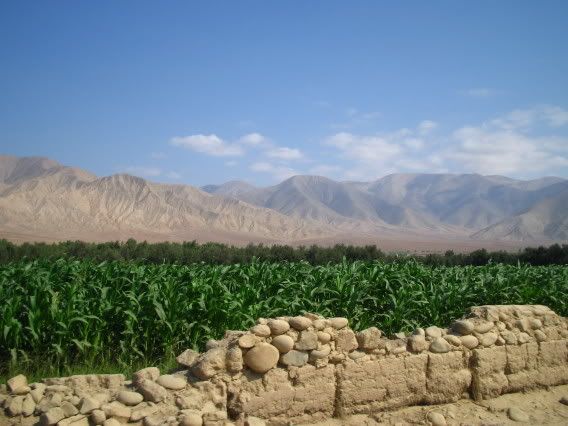Reflections on Peru
For those of you who do not know I spent the last week in Peru. Before specifically addressing our trip, I want to give some background information on what we are doing in Peru. Porter Memorial Baptist Church is working with IMB missionary Mike Weaver, developer of the Rapid Entry Advance Plan (REAP). The current end vision for the Peru partnership is “to have a viable indigenous, reproducible church in every town and every person in the people group have access to the Gospel by 2013 (7 years)”. Simply put we will work ourselves out of a job by 2013 and then employ the plan elsewhere to plant churches among another people group.

Important Concepts
There are two concepts to define in order to gain a correct understand of the purpose and goal of this seven-year partnership. First, church planting is missions. If your idea of a mission trip is evangelism abstracted from the local church then you have an unbiblical understanding of missions. The Great Commission is not a call to evangelize but to disciple. The goal of REAP is to plant churches both through discipling and to disciple the people of Peru. Second, what it means to plant indigenous churches. I think the easiest way to understand this is through painting a picture of what an indigenous church does not look like. Imagine Sunday morning in northern Kenya where locals go to church wearing suits and ties, to sit in pews, and drink communion from little plastic cups. This is not an indigenous Kenyan church it is Americanization, the locals never wear suits any other day of the week, they never do anything indoors much less sit in pews, and they drink from a common cup whenever they eat at each other’s houses. The goal of REAP is planting indigenous churches that are methodologically and theologically Biblical but whose style is distinct to that culture; this means they may meet in huts and not cathedrals, they may play native instruments and not an organ, and they may wear gourds and animal skins instead of suits.
Personal Reflections
First, foreign countries such as France, Japan, Germany, and others had spent time and money investing in the areas that we stayed and visited; the problem was that their honest efforts ranged from helpful to laughably useless. One of the most helpful items was a hydroelectric station used to generate electricity. The most useless was a satellite TV receiver that rebroadcast satellite TV over standard UHF and VHF frequencies that the locals could receive via an antenna. The problem was that the locals did not have TVs much less the electricity needed to power one. As Christians, we often attempt to meet the needs of individuals before forming a relationship and understanding what an individuals specific needs are and how we can meet them best.
Secondly, we are surveying towns deep in the mountains of the world’s driest desert, they have had ¼ inch of rain in 700 years, and almost every town has a Catholic church, Jehovah’s Witnesses, and Seventh Day Adventists. We are interviewing a woman in an abandoned mining town and she told us “I don’t want to learn Catholic, or Jehovah’s Witness, or Seventh Day Adventist; I want to learn the Bible. I know it is God’s Word and it is all we have, but there is not one to teach it to us.” I have never been to a place that is this open in my entire life, where you walk through the fields of harvest and the grain literally cries out “pick me, pick me, pick me.” At the same time, the situation bore an immense amount of shame; because these heretical groups had beaten us to the punch and I think every Christian should be ashamed of that. One thing is for sure, we must go back and I would encourage all of you to get involved in this anyway you can because amazing things are going to happen in Peru and inside PMBC because of Peru.




0 Comments:
Post a Comment
<< Home